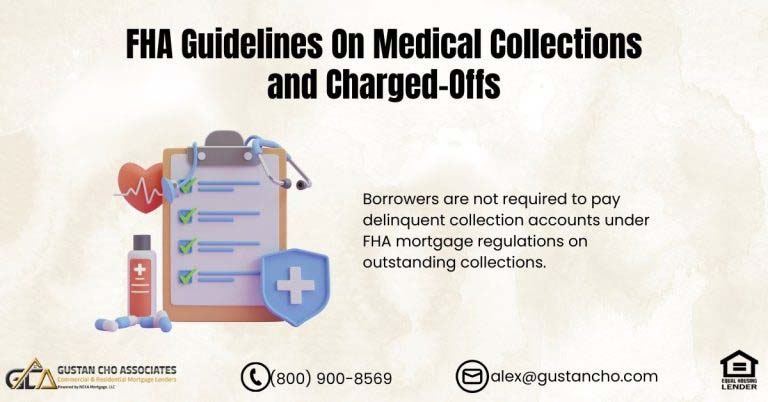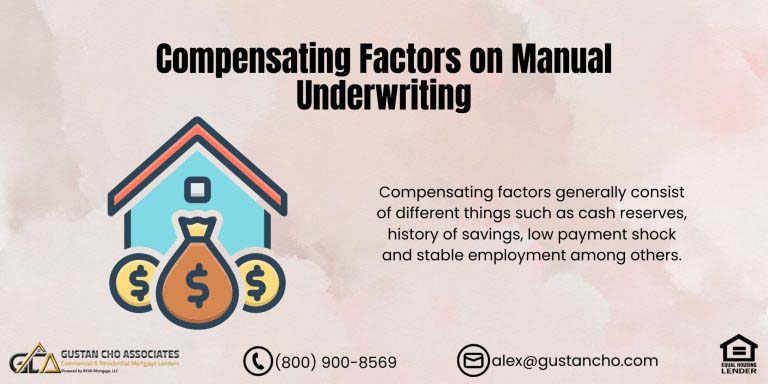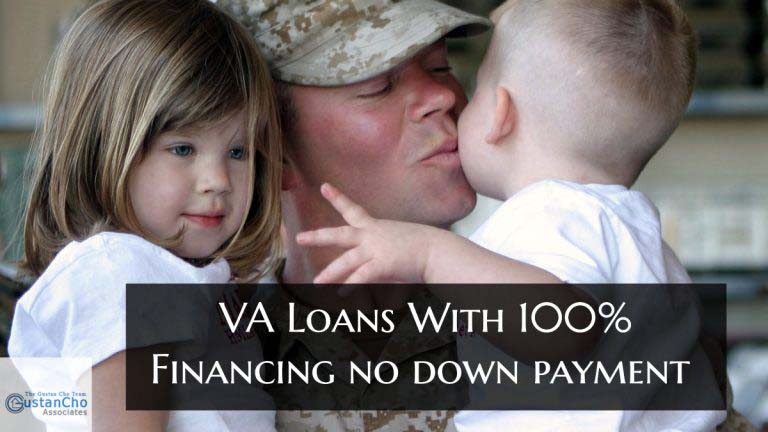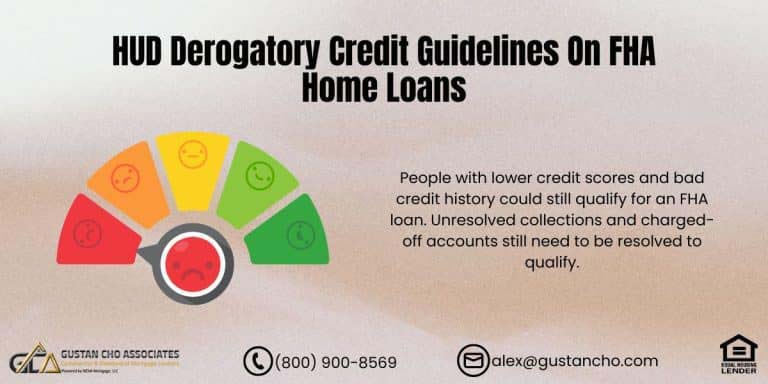Mortgage Loan Programs for Homebuyers: Your Complete 2025 Guide
Buying a home is one of the biggest financial moves you’ll ever make. However, with so many mortgage loan programs for homebuyers available today, it can feel unclear where to start. Each loan program has its own rules, down payment requirements, credit score guidelines, and benefits.
The good news? At Gustan Cho Associates, we specialize in mortgage loan programs for homebuyers with no lender overlays. That means we go strictly by agency guidelines — not extra rules other lenders add. If you’ve been turned down before, we may still get you approved.
In this guide, we’ll break down everything you need to know about the different mortgage loan programs for homebuyers in 2025, so you can find the loan that fits your budget, credit, and homeownership goals.
What Are Mortgage Loan Programs for Homebuyers?
Mortgage loan programs are the different types of loans you can use to buy a home. Some are backed by the government (FHA, VA, USDA), while others are conventional or specialty loans.
Each program is designed to help different types of buyers:
- First-time buyers with limited savings.
- Veterans or active-duty military members.
- Borrowers with lower credit scores or past credit issues.
- Families buying in rural or suburban areas.
- Buyers of high-cost or luxury homes.
- Self-employed borrowers who need alternative documentation.
Understanding your options is the first step to finding the right program. Let’s dive in.
Can I buy a house with bad credit?
Yes—FHA, VA, USDA, and Non-QM programs all allow low credit scores.
Conventional Loans: The Standard Choice for Many Buyers
Conventional loans are the most common type of mortgage loan programs for homebuyers. They do not have government backing, but they adhere to the guidelines established by Fannie Mae and Freddie Mac.
Benefits of Conventional Loans
Conventional loans have some great perks for homebuyers, especially if you’re a first-time buyer, since you can get started with down payments as low as 3%. If you can put down 20% or more, you can skip the whole private mortgage insurance (PMI) thing, which saves you a good chunk of change over time.
These loans are flexible too; you can use them for your main home, a second getaway pad, or even rental properties. With loan terms that range from 10 to 30 years, you can pick a plan that fits your budget and long-term plans just right.
Requirements
- Minimum 620 credit score.
- The debt-to-income (DTI) ratio is usually capped at 50%.
- Standard waiting periods after bankruptcy or foreclosure:
- 4 years after Chapter 7 bankruptcy.
- 2 years after Chapter 13 discharge.
- 7 years after foreclosure.
Best for: Buyers with solid credit and some savings for a down payment.
Overall, understanding these aspects can greatly enhance the home buying experience and ensure that buyers select the most beneficial mortgage loan programs.
FHA Loans: The Go-To for First-Time Buyers
FHA loans are one of the most popular mortgage loan programs for homebuyers, especially first-time buyers or those with lower credit scores. With the Federal Housing Administration backing, FHA loans offer adaptable guidelines.
What’s the lowest credit score needed for a mortgage?
FHA and VA go down to 500 FICO with the right terms.
Benefits of FHA Loans
FHA loans offer significant advantages for homebuyers, making them an attractive option for many. If you’ve got a credit score of 580 or more, you can snag a mortgage with only a 3.5% down payment. For those with credit scores as low as 500, a slightly higher down payment of 10% is required. Additionally, these loans permit a higher debt-to-income (DTI) ratio of up to 56.9% for borrowers with strong credit, allowing for greater financial flexibility.
Another noteworthy benefit of FHA loans is their accommodating approach toward individuals with a history of financial difficulties, such as bankruptcies or foreclosures. This leniency makes it easier for more borrowers to access home financing and achieve their dream of homeownership, even after past credit challenges.
Requirements
- Mortgage Insurance Premium (MIP) required.
- Only available for primary residences.
- Waiting periods:
- 2 years after Chapter 7 bankruptcy.
- 1 year into Chapter 13 with trustee approval.
- 3 years after foreclosure or short sale.
Best for: Buyers with low credit scores, high DTI, or limited savings.
VA Loans: Zero Down for Veterans
VA loans are a great mortgage option for active-duty service members, qualified veterans, and some surviving spouses. They provide many benefits and are one of the best mortgage loan programs for homebuyers.
Benefits of VA Loans
VA loans offer several key benefits, making them an attractive option for eligible borrowers. One of the most significant advantages is that they don’t require a down payment, making homeownership more accessible. Additionally, these loans do not require monthly mortgage insurance, helping to reduce overall costs. People can save on interest rates with these loans compared to FHA or conventional ones, which helps keep those monthly payments more manageable. Furthermore, VA loans feature flexible credit and debt-to-income (DTI) requirements, accommodating a wider range of financial situations.
Requirements
- A valid Certificate of Eligibility (COE).
- Property must be used as a primary residence.
- Waiting periods:
- 2 years after bankruptcy or foreclosure.
Best for: Veterans and military families looking for the most affordable path to homeownership.
USDA Loans: 100% Financing in Rural Areas
The USDA loan program is designed for homebuyers in rural and suburban areas. It’s one of the only mortgage loan programs for homebuyers that offers 100% financing with no down payment.
Benefits of USDA Loans
USDA loans are great for homebuyers because they come with some nice perks. For starters, you don’t need a down payment, which really helps keep those upfront costs down. Plus, the interest rates are usually lower than what you’d find with regular loans, so you save cash over time. They also have more relaxed credit requirements, with most lenders looking for a score of 580 or above, making it easier for many more people to become homeowners.
Requirements
- Must meet USDA income limits.
- Property must be located in a USDA-eligible area.
- Waiting period: 3 years after foreclosure or bankruptcy.
Best for: Buyers with low-to-moderate income looking for homes outside major cities
Will lenders work with me if I have collections?
Absolutely—we offer no-overlay loans that follow agency guidelines.
Jumbo Loans: For High-Priced Homes
If the home you’re buying costs more than the 2025 conforming loan limit ($766,550 baseline, $1,149,825 in high-cost areas), you’ll need a Jumbo loan.
Benefits of Jumbo Loans
Jumbo loans have many advantages, especially for folks wanting to buy high-end homes or properties in pricey areas. These loans are flexible, since you can choose between fixed or adjustable rates depending on what works best for your budget and needs.
Requirements
- Higher credit score (usually 680+).
- Larger down payment (often 20% or more).
- Strong income and reserves required.
Best for: Buyers of high-cost or luxury homes.
Non-QM Loans: Flexible Options for Unique Situations
Non-QM (Non-Qualified Mortgage) loans are specialty mortgage loan programs for homebuyers who don’t fit traditional guidelines. These are perfect for self-employed borrowers, real estate investors, or those with recent credit issues.
Benefits of Non-QM Loans
- Bank statement loans (no tax returns required).
- DSCR loans for real estate investors.
- No waiting period after bankruptcy or foreclosure.
- As low as 500 credit scores are accepted in many cases.
Requirements
- Larger down payments (10–20%).
- Higher interest rates compared to traditional loans.
Best for: Self-employed borrowers, investors, or buyers with unique financial situations.
Fixed-Rate vs. Adjustable-Rate Mortgages
When choosing between fixed-rate mortgages (FRM) and adjustable-rate mortgages (ARM), one of the most important factors to consider is how long you plan to stay in your home. This decision can significantly impact your finances in the long run.
Fixed-Rate loans
Fixed-rate mortgages are great because they keep your monthly payments the same for the whole loan term. This is helpful if you want to know exactly what to expect for your budget. With a fixed-rate mortgage, you don’t have to stress about interest rates going up and down, affecting what you pay each month. It’s a solid choice for anyone planning to stay in their home for a while. Plus, having that kind of predictability can feel comforting, especially when the economy is shaky and rates might rise.
Adjustable-Rate loans
Adjustable-rate mortgages (ARMs) usually kick off with a lower interest rate than fixed-rate loans, which means your initial monthly payments can be much friendlier on your wallet. The catch is that these rates can change after a specific period—typically 3, 5, 7, or even 10 years—based on the loan terms. An ARM might be a smart choice if you plan on moving or refinancing in a few years. You get to enjoy those lower initial rates before any changes happen, making it a solid option for folks who value short-term savings over long-term stability.
However, it’s essential to be aware of the potential for rising payments in the future, especially if you plan to stay in the home longer than the fixed period.
Down Payment Requirements by Loan Type
- Conventional Loans: 3% to 20% depending on property type.
- FHA Loans: 3.5% with 580 credit, 10% with 500–579 credit.
- VA Loans: 0% down.
- USDA Loans: 0% down.
- Jumbo Loans: Typically 20% or more.
- Non-QM Loans: 10%–20% depending on program.
Final Thoughts
With so many mortgage loan programs for homebuyers in 2025, finding the loan that fits your unique situation is key. Whether you need a low down payment FHA loan, a zero down VA or USDA loan, a jumbo mortgage for a luxury home, or a flexible Non-QM option, Gustan Cho Associates has you covered.
Borrowers who need a five-star national mortgage company licensed in 50 states with no overlays and who are experts on mortgage loan programs for homebuyers, please contact us at 800-900-8569, text us for a faster response, or email us at alex@gustancho.com. The team at Gustan Cho Associates is available 7 days a week, on evenings, weekends, and holidays.
Do I have to wait to buy a home until my credit improves?
Not necessarily—you may qualify now with flexible loan programs.
Frequently Asked Questions About Mortgage Loan Programs for Homebuyers:
Q: What are Mortgage Loan Programs for Homebuyers?
A: Mortgage loan programs for homebuyers include different types of loans, such as FHA, VA, USDA, and Conventional, that help people buy a house.
Q: Which Mortgage Loan Programs for Homebuyers are Best for First-Time Buyers?
A: FHA loans are a great option for first-time homebuyers because they’re very accommodating to people with lower credit scores and don’t require a huge down payment.
Q: Can I Find Mortgage Loan Programs for Homebuyers Without a Down Payment?
A: VA loans for veterans and USDA loans for rural areas offer no down payment options.
Q: What Credit Score do I Need for Mortgage Loan Programs for Homebuyers?
A: Conventional loans usually require a 620 score, but the FHA allows 580 (or 500 with more down), and the VA and USDA are more flexible.
Q: Are There Mortgage Loan Programs for Homebuyers with Bad Credit?
A: Yes, FHA loans, VA loans, and many Non-QM loans can approve borrowers even with credit scores in the 500s.
Q: How do Mortgage Loan Programs for Homebuyers Help People with Low Incomes?
A: USDA and FHA loans work well for people with limited income because they allow higher debt ratios and smaller down payments.
Q: What’s the Difference Between Conventional and FHA Loan?
A: Conventional loans need stronger credit and bigger down payments, while FHA loans are easier to qualify for with lower scores and less money down.
Q: Are Mortgage Loan Programs for Homebuyers Available After Bankruptcy?
A: Yes, waiting periods vary: FHA allows approval 1 year into Chapter 13, VA after 2 years, and Conventional after 4 years.
Q: Do Mortgage Loan Programs for Homebuyers Cover Fixer-Upper Houses?
A: Yes, FHA 203(k) loans let you buy a home and roll in repair costs into one mortgage.
Q: How do I Know Which Mortgage Loan Programs for Homebuyers are Right for Me?
A: The best way is to talk with a lender like Gustan Cho Associates, who can review your credit, income, and goals to match you with the right program.
This article about “Easy Mortgage Loan Programs for Homebuyers With Bad Credit” was updated on August 29th, 2025.
Who can help me get approved with bad credit?
Gustan Cho Associates specializes in bad credit mortgages nationwide.










